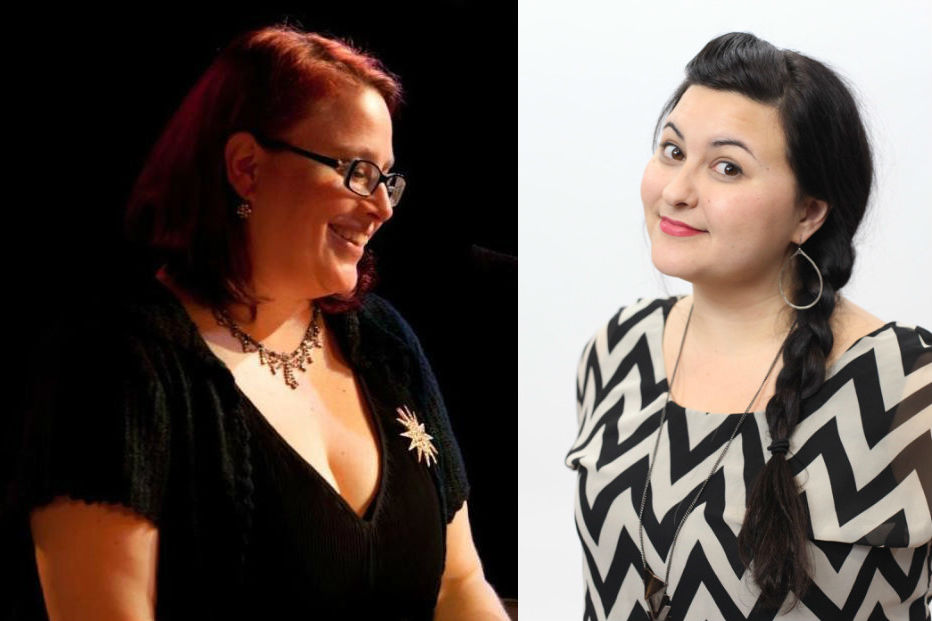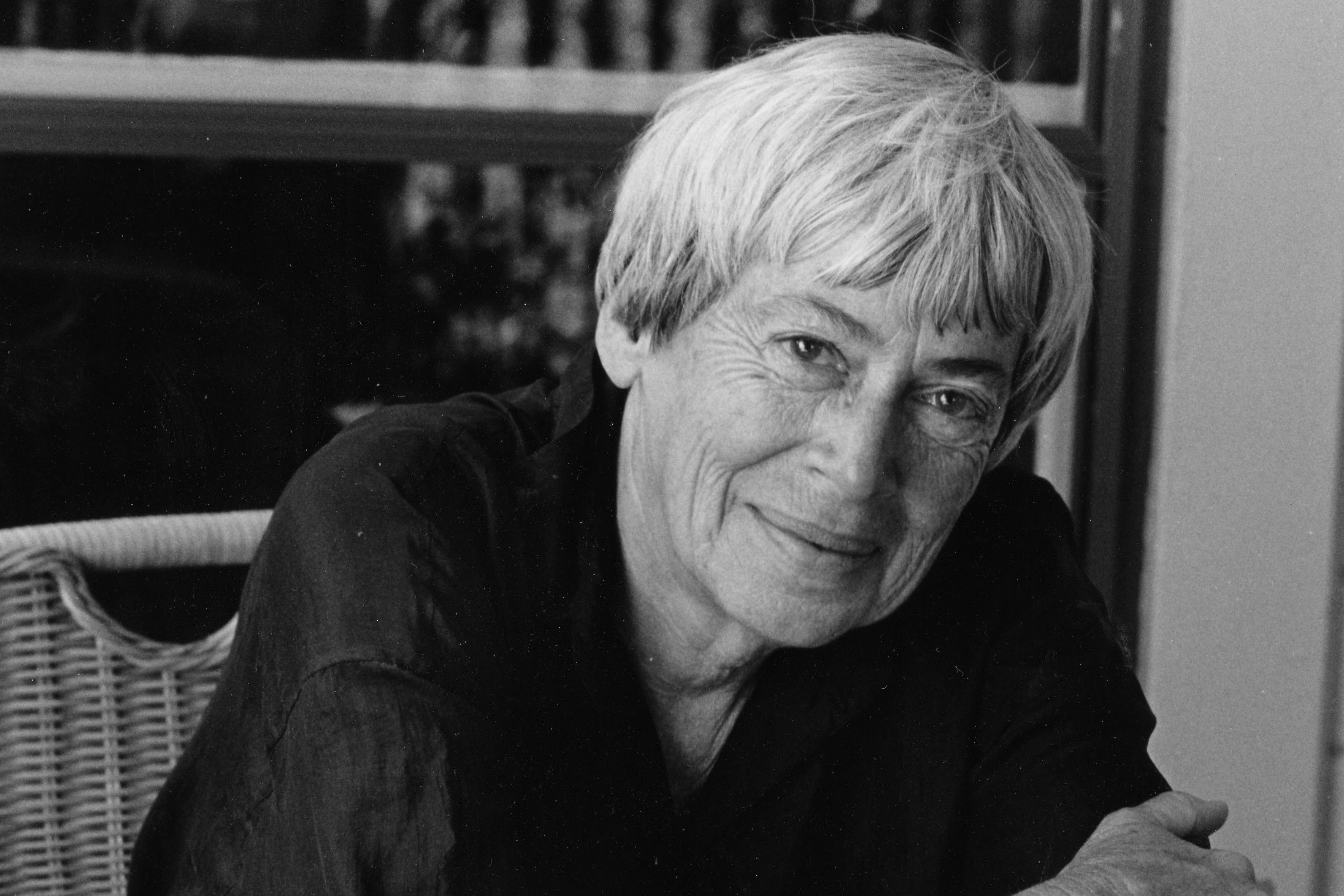Bri Pruett on Dating, Small-Batch Granola, and Why She's Leaving Portland

Image: NASHCO PHOTO
Bri Pruett keeps a list. You know the type—a notches-on-her-bedpost type of list, logging all the romantic entanglements of her past, from casual dates to serious relationships. She records name, age, astrological sign, and a fun fact for each—there was the professional basketball player (in the Ukraine, but still), the guy with the metal heart valve (his chest sounded like a ticking bomb), and the seemingly normal dude who believed Nicki Minaj was an Illuminati member (Pruett says she might have countenanced Beyoncé).
And because Pruett’s an outspoken, sharp-witted comedian whose standup often draws on topics like dating and body image, it’s no surprise that list started making its way into her act—at her own shows in Portland, and even when she appeared at Bumbershoot in 2015. Early last year, Pruett began building a full solo show from that ledger of conquests. The result was Stellar, which premiered in October and returns for a four-show run at Funhouse Lounge this month. The show packs plenty of jokes, Pruett assures us, but it’s not laugh-a-minute—alongside funny anecdotes about love, sex, and Tinder, there’s more sober material than in Pruett’s standup (also, 100 percent more Sade).
Stellar is something of a last hurrah, too: Pruett, like so many Portland comedians before her, is headed to Los Angeles. (She’s “gotten some bites,” she says, and she recently appeared on Jeff Ross' Roast Battle II on Comedy Central.) We talked with the Portland-raised Pruett about what comedy taught her about dating, why she decided to dance onstage, and what her 88-year-old nana thinks of the show.
So: this list. Why did you start keeping it?
My very best friend and I lived on separate coasts for a long time, so I would summarize my love life in emails to her. I just started throwing these names into a document, and then I became obsessed with it. But it’s funny—I woke up this morning and realized I haven’t updated the list. I’m recently single, and the list has changed. And I’m like, well, maybe I’ve outgrown it. Maybe the show has let me put it to bed.
Stellar charts some of your dating exploits. Can you give us a peek?
I went out with this really nice guy—really cute, a job in accounting, down-to-earth. I’m trying to draw him out, figure out what he’s all about. He’s like, “Well, I do have this passion, this side business. Accounting pays the bills, but I do something—” And I’m like, “Oh, are you in a band or something?” And he’s like, “No, I have this small-batch granola business. I make granola.” It’s like, what? Why? I guess granola is really hard to make and sell—it’s a pretty tough industry. I just thought that was hilarious. I mean, it’s amazing and beautiful and I wish him all the luck. We never went out again because there was no chemistry, but I thought that was hilarious. Granola?!
How does this show differ from your standup?
This show afforded me ways to talk about the things I already talk about in standup, but in a way that’s more theatrical and less about super-punchy laughs. I did theater before I did standup, and I kind of miss the opportunity to not get a huge laugh and just have a moment. In the original run of this show, I had audience members who were probably more familiar with me as a comedian, and during more sober moments they still were laughing. It was a little confusing until I sat down and thought about it. If people are uncomfortable, or feeling sadness or reflecting on their own state of romantic attachment, they'll laugh, and it releases that tension. But for the remaining performances, I found myself removing more of those releases of tension. I would take more punchlines out, just to give the audience the OK to not laugh. The first draft of the show was way funnier. I mean, it’s still really funny. It’s really giggly. But there are spaces for other things.
It’s a lot about dating, it’s a lot about having a body, it’s a lot about sex. But my nana saw it, and she was chill afterwards, and she’s 88 years old.
You’ve also got more theatrical elements than in your standup.
I thought it would be useful to tell the story visually, so I’ve got a projector. The slides provide visual texture. The projector has been amazing for landing punchlines. It’s sort of like having a partner—it’s nice to not be alone. The sound cues give it a framework and sort of a cinematic quality. And then just to have some fantasy moments when I can sing...
Is this where Sade comes in?
(Laughs.) No—I have a lot of Sade in the house music. The music in the show—it’s not a musical by any stretch—is to express emotion, to talk about romantic pain and feeling, and how creating art is a really important way to get over something or somebody.
And there’s some dance, too?
I close the show with a dance. The show is pretty talky, but it closes with something that’s non-verbal. I think it gives people the space to feel free not to laugh and to reflect on the themes of the show in a different way. I’m talking about body positivity and beauty constructs and my experiences as a fat person, so having a dance is a bit of a pushback to this media construct of what people should look like, or what dancers should look like. It was a moment for me to take in my life—just like, I can fucking dance if I want to.
What’s your approach to dating these days?
I don’t really play games. All the texting, all this language of courtship—I try to totally disengage from that and communicate as straightforwardly as I can. And I meet a lot of dudes on the frontlines of dating who are exactly the same way. More and more, I think people are like, this language is total bullshit. Everybody’s trying to protect their hearts, and that’s why they get caught up in that. But really, it’s pretty simple: Unrequited love is not cute anymore. If somebody doesn’t want me, I don’t want them.
I also think being a comedian has taught me about rejection. When somebody listens to you tell a joke and they give you nothing, like no emotion at all, that is rejection. But it’s OK. The moment passes. The truth is, if somebody rejects me, I don’t want to be with them.
You grew up in Portland and have built your comedy career here. Now you’re leaving. Why?
I always saw myself as somebody who would need to leave Portland. As soon as I graduated from school and looked around at the arts scene and saw the amount of money on the table, I was like, yeah, that’s probably not going to work. That was 10 years ago. I nestled down and was a working artist in the city as long as I could be. I’m fully committed to this career, so the next step for me is L.A. But I’m so happy I had all these years in Portland. It developed my voice. I love the audiences here. People are smart and they care and they’re polite. That’s the dream—you want people to listen and really think about what you’re saying.
Stellar runs 9 p.m. Thursdays, Jan 5–26, at the Funhouse Lounge.




